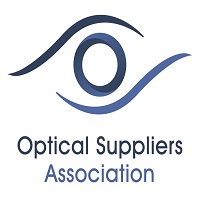General News
Specsavers alter the National Gallery’s most famous paintings
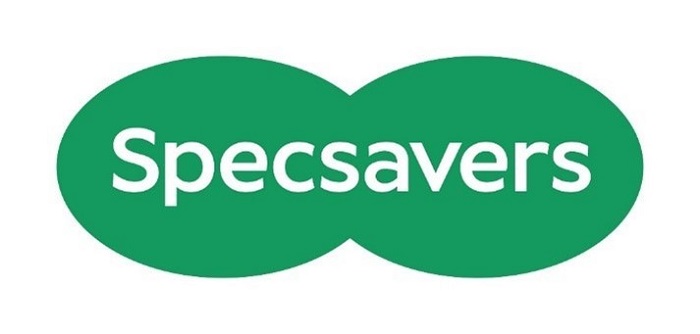
Specsavers alter the National Gallery’s most famous paintings to illustrate the visual impacts of glaucoma
- For World Glaucoma Week, Specsavers has partnered with the National Gallery in its 200th year to curate a visual demonstration which simulates the varying stages of glaucoma
- Botticelli, Caravaggio, Van Eyck and Gainsborough are among the artists whose paintings have been altered
- Glaucoma is a common eye condition affecting around 700,000 Brits and can be the cause of irreversible sight loss
- The iconic paintings will appear as if you are viewing them through ‘the lens’ of someone with glaucoma, with blurred spots and missing details
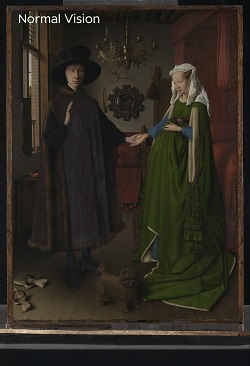
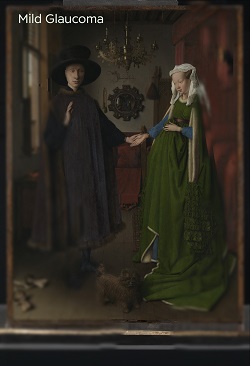
To mark World Glaucoma Week (10th – 16th March) some of the most famous artworks from the National Gallery’s collection, have been digitally altered by Specsavers, to demonstrate the visual symptoms experienced by glaucoma sufferers.
Five iconic paintings have been modified to simulate the varying stages of glaucoma including pieces from some of art history’s most celebrated artists, including Botticelli (about 1445-1510) and Gainsborough (1727-1788). With imagery and a video depicting the degenerative progression from “normal vision” to “advanced glaucoma,” the visuals provide insight into how the condition affects people’s experience of the world around them.
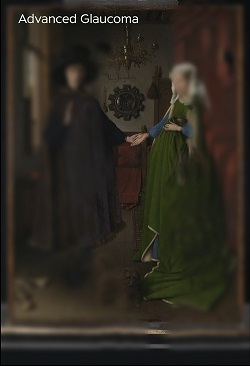
Glaucoma, a common eye condition where the optic nerve between the eye and the brain becomes damaged, currently affects an estimated 700,000 individuals [i]in the UK and is usually detected through a routine eye-test. The condition, often referred to as the ‘silent thief of sight’ can be present without any symptoms, with almost half of those living with the condition being unaware that they have it.
The National Gallery is home to the Nation’s Collection of art and with over four million people enjoying National Gallery paintings in person in 2023, the doctored images are sure to trigger the memories of countless art lovers across the nation. The selected artworks include prized pieces including The Supper at Emmaus (1601) by Michelangelo Merisi da Caravaggio (1571-1610), Venus and Mars (about 1485) by Sandro Botticelli, Bathers at Asnières (1884) by Georges Seurat (1859-1891), Mr and Mrs Andrews (about 1750) by Thomas Gainsborough and The Ambassadors (1533) by Hans Holbein the Younger (1497/98 – 1543).
The images highlight that as people with glaucoma’s vision worsens, blurring at the periphery increases. For those with advanced glaucoma, key details such as the water in Seurat’s Bathers at Asnières, to trees and Mr. Andrews himself in Gainsborough’s Mr and Mrs Andrews are lost entirely, drastically affecting the viewers enjoyment of the painting.
 Giles Edmonds Clinical Services Director at Specsavers said: “Over two million adults in the UK are at risk of losing their vision due to glaucoma – the leading cause of irreversible blindness worldwide.
Giles Edmonds Clinical Services Director at Specsavers said: “Over two million adults in the UK are at risk of losing their vision due to glaucoma – the leading cause of irreversible blindness worldwide.
“Seeing the loss of details in these famous artworks highlights just what an impact this condition can have, not just when viewing beautiful art, but also in your day-to-day life.
“Having an eye test at least every two years, regardless of age, vision issues or symptoms, is so important as this condition is treatable and it is possible to prevent potential sight loss, or even irreversible blindness.”
Many people with early-stage glaucoma have enough vision to work, read, drive, and live independently. However, chronic glaucoma can go unnoticed because it’s painless and affects your peripheral vision. Without regular checks you may not notice there’s a problem until your start to lose central vision.
Acute glaucoma develops at a much faster rate as a result of sudden pressure build-up in the eye. Although rare, it is usually painful and is often accompanied by blurred vision, haloes around lights, headaches, red eyes and nausea or vomiting.
Neglecting treatment, including missing medications, could make your vision worse, and in some cases can even lead to permanent vision loss.
Speaking about the initiative, Tracy Jones, Head of Communications at the National Gallery said: “As the National Gallery approaches its 200th birthday in May 2024, we are pleased to partner with Specsavers during World Glaucoma Week, to further demonstrate our commitment to welcoming the widest possible audiences to enjoy and engage with great art. The awareness week lends a crucial reminder to everyone about the importance of getting regular sight tests, to continue to enjoy not only their favourite artworks, but also to detect early signs of conditions such as glaucoma.
“Thankfully, the National Gallery offers a range of accessible facilities to help the public experience the collection, visit exhibitions and come to events. Access for blind and partially sighted visitors includes audio descriptive content of key works in our collection as well as a series of events entitled “Audio Art: Utterly in the picture”. Designed specifically for blind and partially sighted audiences, these events explore paintings on multi-dimensional levels – through words, music, and sounds.”
Joanne Creighton, Chief Executive of Glaucoma UK, said: “It’s fantastic to see this creative campaign, in collaboration with The National Gallery, raising awareness about glaucoma while emphasising the importance of regular eye tests.
“Understanding that glaucoma can often be symptomless is crucial; you might not notice any changes in your vision early on, and it’s often called ‘the silent thief of sight’. Regular eye tests are essential because they’re the best way to catch glaucoma early and give you the best chance of preventing sight loss from glaucoma.
‘Given the significance of early detection, it’s crucial to prioritise regular eye tests. They play an important role in safeguarding your vision and ensuring your eyes stay healthy.”
To find out more about the National Gallery’s Bicentenary Programme and our accessible events visit; www.nationalgallery.org.uk/about-us/ng200-programme
[i] Glaucoma UK – https://glaucoma.uk/blog-category-news/glaucoma-awareness-week-2023-your-glaucoma-perspectives/


















